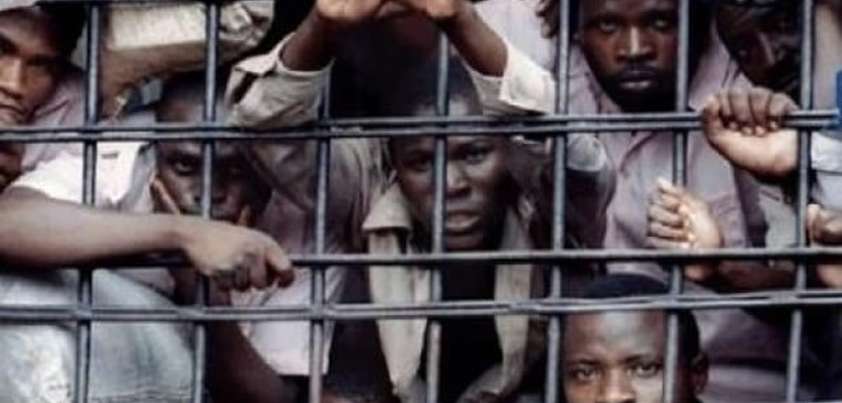 Some websites describe Nnamabia, the young protagonist in this story by Chimamanda Ngozi Adichie, using terms such as ‘a wayward, rebellious son’. This is treating him too kindly. At the beginning of the story, Nnamabia is an entitled, spoiled, manipulative brat… too weak-willed to resist imitating the petty thefts of his peers, yet so cowardly that the only person he is game enough to steal from is his mother. Although he did not deserve the punishment he received at the hands of the so-called Nigerian justice system, he learnt some important lessons and came out of it a man.
Some websites describe Nnamabia, the young protagonist in this story by Chimamanda Ngozi Adichie, using terms such as ‘a wayward, rebellious son’. This is treating him too kindly. At the beginning of the story, Nnamabia is an entitled, spoiled, manipulative brat… too weak-willed to resist imitating the petty thefts of his peers, yet so cowardly that the only person he is game enough to steal from is his mother. Although he did not deserve the punishment he received at the hands of the so-called Nigerian justice system, he learnt some important lessons and came out of it a man.
Original Text / PDF (5,956 words)
Themes
There are four major themes in the story:
- Parental Neglect: In the rarefied atmosphere of the university housing estate, parents are so busy socializing and pretending to others that they are good parents that they don’t make time for their children. There is a touch of irony in their response to the petty crimes. The parents know that their children are responsible, but place the blame on “riffraff” from town. One normally associates high crime rates with people living in poorer neighborhoods, yet this story takes place in a ‘respectable’ middle class community. The senior policeman summed it up well: You cannot raise your children well, all of you people who feel important because you work in the university. When your children misbehave, you think they should not be punished.
- Coming of Age: This applies to both the narrator and Nnamabia. She sees the brutality of life outside the university estate; Nnamabia experiences it. The narrator then watches with pride as her brother grows from a pampered, morally weak university student into a brave young man prepared to stand up for his beliefs. I imagined him raising his voice, calling the policeman a stupid idiot, a spineless coward, a sadist, a bastard, and I imagined the shock of the policemen, the shock of the chief staring open-mouthed, the other cell mates stunned at the audacity of the handsome boy from the university.
- Violence and Savagery: At the university, campus cults have evolved into versions of American color gangs and kill and maim with impunity. (Ironically, these were initially formed to fight for student equality and maintain law and order on campus!) In Enugu prison, the guards enforce discipline through the threat of torture in cell one or being ‘disappeared’ at the black site to which Nnamabia was taken. In Nnamabia’s cell, ‘General Abacha’ rules the weaker prisoners through threats and intimidation.
- Lack of Compassion: The prison system had so dehumanized the guards and other inmates that none showed compassion for the plight and treatment of the old man. Nnamabia, having led a sheltered life up to that point (and possibly holding some religious convictions), is deeply disturbed by it. Nnamabia was staring at his yellow-orange rice as he spoke (about the old man), and when he looked up I saw my brother’s eyes fill with tears — my worldly brother — and I felt a tenderness for him that I could not have explained had I been asked to.
Minor themes include: 1) The Westernization of Nigerian society: Progressing from Sesame Street, reading Enid Blyton and eating cornflakes for breakfast to rap music, gang warfare and guns; 2) Gender bias: ‘Son preference’ is deeply embedded in the culture of many developing countries. The narrator’s sarcastic tone when relating Nnamabia’s misdeeds at the beginning of the story, coupled with the stone throwing episode when she feels the daily prison visits are unnecessary, suggests that she is not happy with his privileged treatment by her parents; and 3) Life is not always fair! Although Nnamabia broke curfew, he probably wasn’t a cult member; the old man certainly appears to have been innocent. Neither deserved the treatment he received.